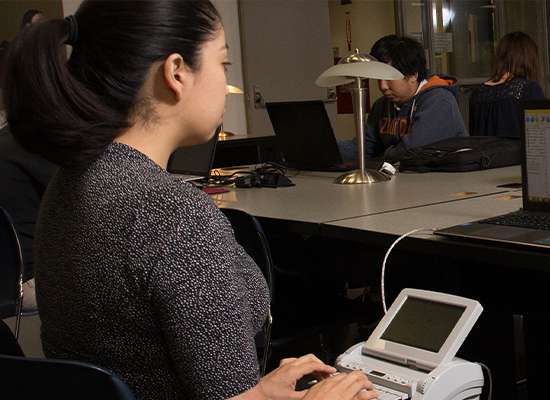The Biggest Obstacles in court reporting Today (And How They're Overcome)
The Biggest Obstacles in court reporting Today (And How They're Overcome)
Blog Article
Understanding the Necessary Function of Court Reporting in Legal Process
Court reporting is commonly neglected, yet it's vital in legal proceedings. Allow's discover the basic functions of court reporting and its significance in the lawful landscape.
The History of Court Coverage
Court coverage has a rich history that goes back to ancient human beings, where scribes used various techniques to capture spoken words. The earliest types of shorthand arised in Greece around 400 BC, permitting thinkers and politicians to videotape speeches quickly. As you relocate with history, you'll find that the Romans took on comparable strategies, fine-tuning them to document lawful proceedings. By the 16th century, contemporary shorthand systems started to take form, allowing stenotype reporter to produce precise transcripts efficiently.
In the 19th century, the development of the typewriter revolutionized the career, making it simpler to develop legible records. The intro of steno makers in the 20th century additionally advanced court coverage, allowing real-time transcription during tests. Today, stenotype reporter play a substantial role in legal process, making sure that every word spoken in the courtroom is properly recorded. Recognizing this background highlights the value of court coverage in keeping a fair lawful system.
The Skills Required for Court Reporters
As a stenotype reporter, you need strong typing abilities to keep up with the hectic dialogue of lawful procedures. Your capability to pay attention diligently is equally as vital, ensuring every word is captured accurately. Grasping these skills is vital to delivering precise and reliable transcripts.
Skilled Keying Capacities

Solid Paying Attention Skills
Solid paying attention skills are vital for stenotype reporter, as they need to precisely catch spoken words in actual time. You need to focus intently on the dialogue, getting nuances, tone, and context to assure every detail is taped correctly. This skill helps you separate between audio speakers, recognize lawful jargon, and adhere to complicated discussions. It's not just regarding hearing words; it has to do with understanding and analyzing them quickly. You'll frequently encounter numerous accents and speech patterns, so flexibility is crucial. Practicing energetic listening techniques can improve your capabilities; for example, summarizing what you have actually listened to after discussions can reinforce your abilities. Eventually, strong listening abilities make you an indispensable property in legal process, making sure quality and accuracy in the court record.
The Innovation Behind Court Coverage
In the domain of lawful process, innovation plays a necessary duty in enhancing the precision and performance of court coverage. You're most likely acquainted with the traditional stenotype maker, yet modern stenotype reporter now utilize sophisticated software that incorporates with these devices, allowing real-time transcription. This indicates you can have instantaneous access to the records as the procedures unravel.
Digital audio recording is one more technological development that's obtaining traction. It captures every talked word, ensuring nothing is missed out on. Some press reporters use voice acknowledgment software application, which can assist enhance the transcription process, though it still requires human oversight for accuracy.
Furthermore, cloud-based storage space permits very easy gain access to and sharing of records, improving collaboration amongst legal teams. By leveraging these modern technologies, stenotype reporter can offer premium, timely records that are vital for the legal process. Accepting this tech not only improves your understanding but also ensures dependability in lawful documentation.
The Court Coverage Refine

As legal proceedings unfold, the court reporting procedure ends up being crucial in catching every detail accurately. You'll locate that a stenotype reporter plays a crucial role by transcribing talked words into composed message in real-time. When you enter the court room, the reporter is already prepared, geared up with specialized devices like stenographic equipments and audio recording gadgets.
Throughout the procedures, the reporter pays attention attentively, inputting out every little thing stated, from witness statements to attorneys' arguments. You might observe them pausing occasionally to ensure clearness or to request for a repeat if something wasn't clear. After the session, the press reporter assesses the transcript, making required edits for readability.
This whole procedure not just guarantees a comprehensive document yet likewise prepares you for future reference during appeals or instance evaluations. In the fast-paced setting of a court, the court reporting process is vital for keeping an accurate account of occasions.
The Significance of Precision in Transcripts
While a stenotype reporter's main obligation is to transcribe look these up spoken words, the precision of these records is critical for the honesty of legal proceedings. When you're associated with a situation, you count on precise documentation to comprehend the occasions and disagreements presented. Any kind of mistakes in transcription can bring about misconceptions, misinterpretations, and even wrongful judgments.
Exact transcripts assure that every information is recorded, supplying a reputable document for judges, attorneys, and juries. This level of detail is important throughout charms or when referencing previous statements. If a transcript contains mistakes, it can threaten the entire legal procedure, possibly affecting outcomes.
Additionally, accurate transcripts copyright the civil liberties of all celebrations involved, advertising justness and openness. Whether you're a lawyer preparing for trial or a witness reflecting on your statement, you can trust that the court reporter's ability in accuracy plays a considerable duty in your instance's success.
The Duty of Court Reporters in Different Lawful Settings
Court reporters play a vital function in different lawful settings, from tests to depositions and lawful hearings. You'll find that their work guarantees every talked word is precisely recorded, which is vital for the legal procedure. Understanding exactly how their obligations differ across these atmospheres can highlight their influence on the justice system.
Court Reporters in Tests
In any legal test, you'll locate that court press reporters play an important function in capturing the procedures with precision and precision. Court press reporters must keep focus and rate, usually using specialized devices to maintain up with fast-paced dialogue. Ultimately, court reporters aid promote the justice system, guaranteeing openness and accountability throughout tests.
Depositions and Lawful Hearings
Beyond tests, stenotype reporter likewise play a crucial duty in depositions and legal hearings. During these proceedings, they record every spoken word, making certain a precise document of testimonies and discussions. You'll find that this accuracy is essential, as depositions frequently act as a foundation for later arguments in court. Court press reporters supply real-time transcription services, allowing lawyers to follow along and attend to any type of issues instantly. Their job enhances the performance of lawful hearings, making it simpler for all events to refer back to the official read this record. Furthermore, the records they produce can be significant for allures and various other legal processes - court reporting. In brief, Read More Here stenotype reporter are vital in maintaining the honesty and clearness of the legal document in depositions and hearings.
Future Patterns in Court Reporting
As innovation proceeds to progress, the future of court coverage assures to be formed by ingenious tools and practices that enhance accuracy and performance. You'll likely see increased use synthetic intelligence and real-time transcription solutions, streamlining the reporting procedure. These developments can aid you access transcripts faster, which can be important for your lawful methods.
Additionally, integrating video conferencing and remote coverage will certainly come to be a lot more typical, enabling you to get in touch with court press reporters from anywhere (court reporting). This flexibility can make depositions and hearings more easily accessible, saving both time and resources
You'll also notice a focus on electronic recordkeeping, which simplifies the storage space and retrieval of records. With cloud-based services, you'll have the ability to share papers firmly and team up with your legal group in real-time.
Frequently Asked Concerns
What Is the Typical Salary of a Court Reporter?
The ordinary income of a court reporter differs by place and experience, but you can anticipate it to range from around $50,000 to $80,000 annually. Numerous variables affect this revenue, consisting of expertise and need.
Just how Do I Come To Be a Qualified Stenotype Reporter?
To come to be a certified court reporter, you'll need to complete a court reporting program, pass a certification examination, and gain sensible experience. It's critical to remain upgraded on industry criteria and proceeding education and learning requirements.
What Kinds of Instances Do Court Reporters Cover?
Stenotype reporter cover different instances, including criminal tests, civil suits, depositions, and mediation hearings. You'll discover them documenting every little thing, making certain exact records for judges, lawyers, and parties included, catching every word spoken in legal settings.
Are Court Reporters Required to Have a Level?
Yes, stenotype reporter normally need a degree or accreditation in court reporting. Several programs supply specialized training, ensuring you gain the skills necessary for exact transcription and legal paperwork in various settings.
Can Court Reporters Work Remotely?

Report this page